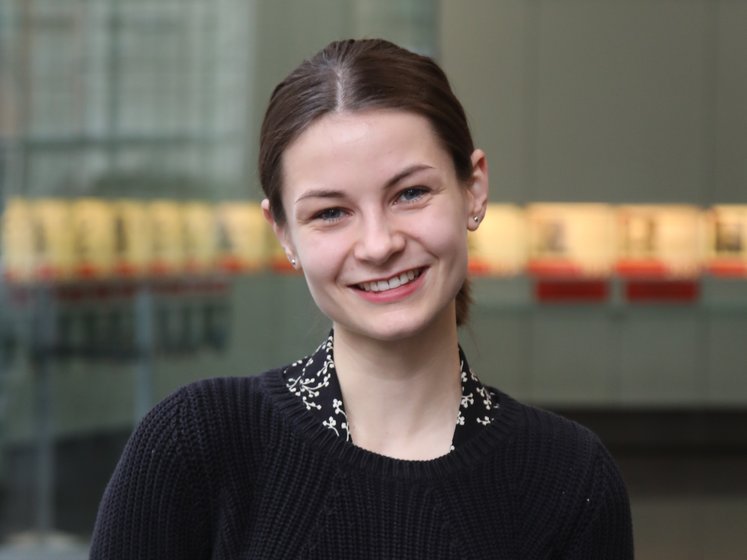 Kat Hellbach, master's student, Department of Gender Studies
Kat Hellbach, master's student, Department of Gender Studies
Why are you passionate about helping to build an LSE for everyone – a more equitable, diverse and inclusive community? How do you hope to make a difference here at LSE?
Issues of representation affect most organisations and institutions in close proximity to LSE. Acknowledging this builds the foundation upon which EDI acts to ensure that LSE is truly for everyone. I am excited to be a part of Making a Choice. I believe that LSE not only has the potential to achieve greatly as a microcosm, but also to set an example for structures beyond our community.
How does the training you’re facilitating empower attendees to confidently deal with issues such as hate crime and sexual consent?
Personally, I believe that empowerment is something individuals achieve for themselves. My job is to encourage our attendees to be aware of certain situations as well as to raise awareness of how we can deal with issues of sexual misconduct and hate crimes at LSE. The training also provides participants with hands-on information on how to report incidents, which again underlines that LSE is committed to recognising and ending violent behaviour.
What do you think is the most important thing students and colleagues in positions of responsibility can do in order to make others feel included, safe and supported?
Listen, listen, listen. Do not judge and don’t be afraid to ask for help, for instance by emailing EDI or having a look at our sources of support page. The most important thing I have learnt so far however is to recognise your own privilege and to act accordingly — do not assume that your experiences are universally valid!
What’s the most important thing you’ve learnt from being involved in the Making a Choice workshops?
Dealing with the different scenarios which build the core of every Making a Choice workshop has taught me that neither questions of consent, nor bystander intervention can be viewed in static terms. Rather, I realised that these topics require a constant broadening of our knowledge, the ability to confront one’s own experiences and opinions, and above all they call for a more open discourse on equity, diversity and inclusion.